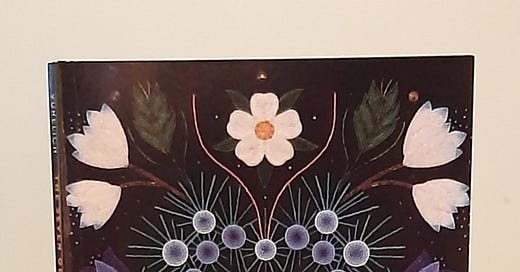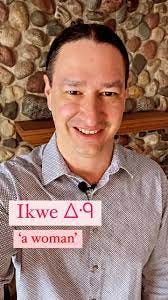An ambulance arrived shortly after 7 am every morning during the month of February five years ago. The siren went abruptly silent every time it turned the corner into the back entrance of the senior care facility at the end of my street.
Three houses down the block, the virus killed Doris.
Then William in Annapolis. Alone in a hospital. We’d been close friends since 1980 when we were in classes together in Chicago. I still haven’t deleted the last text he sent from the ICU.
For too many years, I had been riding the waves of grief. Dad in 2018, Mom in 2014, and the love of my life, Sam, in 2009.
I’d also been writing a book set on Lake of the Woods, the place where my mother grew up and I spent my childhood vacations. But the month-long writing residency I’d been awarded in 2020 through the Science Museum of Minnesota had to be deferred a year and I couldn’t make my annual pilgrimage to Warroad. No face-to-face interviews. No access to local archives. I had anticipated finishing the manuscript that summer and now it seemed everything had been put on hold. I found myself living alone with social interactions mediated by a phone and the internet.
Then like a soothing balm for my spirit, Ojibwe Word of the Day appeared in my Facebook news feed. The video focused on the smiling face of a handsome 30-something man. He had a large, smooth forehead and kind eyes. His expression radiated a calm demeanor and quiet joy.
I turned the volume up.
“Boozhoo indinawemaaganidog, Aaniin! Hello all my relatives,” he introduced himself in a deep, soft voice; almost a whisper.
This charismatic advocate for the endangered Ojibway language – James Vukelich Kaagegaabow – broadcast his Ojibwe Word of the Day segments every Thursday night from the basement of his suburban Burnesville home during the pandemic.
I began to learn more than vocabulary. While my social realm shrank to the size of my computer screen, my consciousness expanded.
Kaagegaabaw wrote a book about Ojibway spiritual traditions. The Seven Generations and the Seven Grandfather Teachings offers a path to peace with practices to transform our lives and those of future generations.
It’s why I picked it up again this week to read. I had promised myself I would not surrender my emotional sovereignty to news headlines and social media. It hasn’t been easy lately.1
Grounding myself in an expanded sense of time grants me the ability to act, instead of react, to the latest outrage.
Calling upon the knowledge and experiences of parents, grandparents, and great-grandparents and those who came before allows me to contemplate the consequences of my actions on children, grandchildren and great-grandchildren.
The word Indinawemaaganidog used in the greeting James introduced himself means “I am all of my relatives and my relatives are me.”
This idea feels familiar. Before my great-parents immigrated to Minnesota, naming conventions in Sweden followed this idea that who you are related to defines you. My great-grandfather Louis was the son of Swen Erickson. Swen’s son = Louis Swenson. This patronymic naming system echoes this idea of identity based on kinship. My relatives have only been Swensons since they crossed the Atlantic.
I am the middle link in a seven-generation chain of relatives. From my point-of-view as the great-granddaughter of Swedish immigrant homesteaders, I write with my focus toward the future about the lessons learned from the past.
As I learned more about the Ojibway language, I compared it to English. The first difference I noticed is how much I use that one-letter word, I, and how infrequently it is used in Ojibway.
Imbued in English grammar is an orientation to see the world in relation to me. The self is the center of the universe. It’s the subject of many of my sentences. I hadn’t realized how much a Western European worldview based on individualism is built right into the structure of my speech.
Subtle, but a distinction worth noting.
Instead of the English sentence construction – I spilled the milk – the Ojibway language structures the sentence differently – the milk spilled.

In the second sentence, the milk is the subject, not me.
The second difference I noticed between English and Ojibwe is how much English is a noun-based language and Ojibway is a verb-based language. Nouns are persons, places, things. The English language embodies Western values based on objects of possession. The Ojibway language embodies values based on action.
These differences from the English language also reveal how the Ojibway language is structured around a guiding principle: All of my actions affect my relatives and all of my relatives’ actions affect me.
Kaagegaabaw’s book guides readers to minobinmaaadiziwin, “the good life.” The Seven Grandfather Teachings are sacred laws. If followed, they promise a life of balance and peace.
The first of these teachings is truth.
Truth is not a noun. It’s not abolute, not abstract, not eternal.
Truth is a verb.







What a beautiful essay! I loved this and will come back to this again. I love the spirit of this teaching. We are the people who came before and will come after and we don’t exist without them.
Fascinating!!! I had a massage client who was a linguistics professor at Cornell. She spent her summers in Montana working to save the native language there that was in danger of becoming extinct. It was so interesting to hear how languages reflect different views of the world than English.